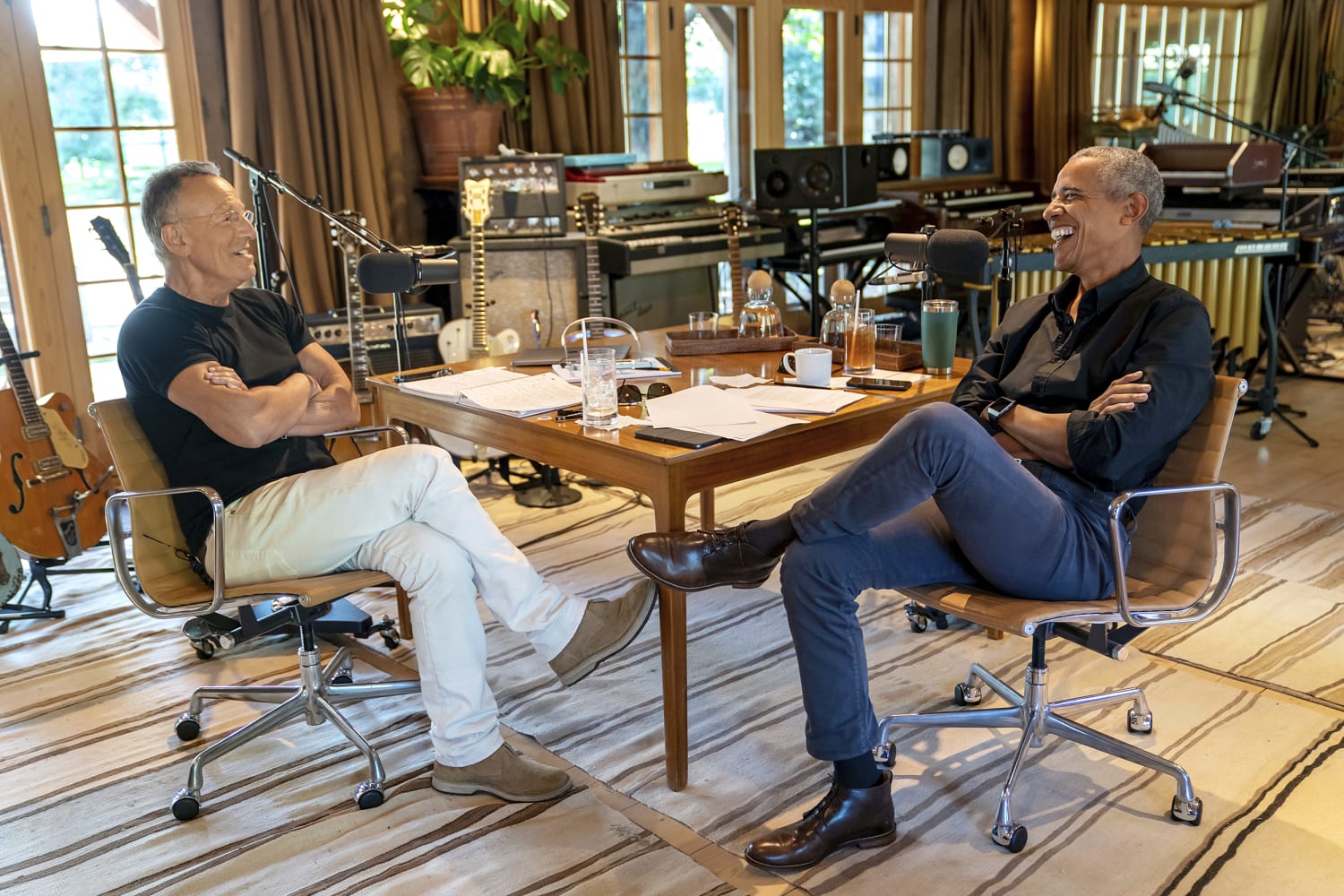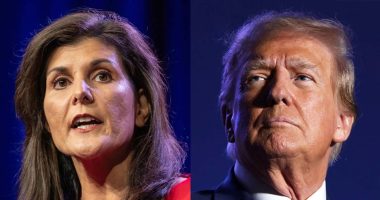Since when did Barack Obama and Bruce Springsteen become part of the problem?
How does partnering with Spotify in its quest for world domination help us with Obama’s desire to “find our way back to a more unifying American story”?
As you’ve no doubt heard, the beloved former Prez and the once and future Boss now have a podcast on the web audio streaming service Spotify. How could they not? After all, the two “have formed a deep friendship since they first met on the campaign trail in 2008,” according to a statement from the streaming service. And isn’t that what friends do in 2021? Especially when you’re Barack and Bruce.
“On the surface, Bruce and I don’t have a lot in common,” Obama acknowledges in the podcast teaser. “But over the years, what we’ve found is that we’ve got a shared sensibility. About work, about family and about America. In our own ways, Bruce and I have been on parallel journeys trying to understand this country that’s given us both so much.”
The big questions the two hope to confront, Obama said: “How did we get here? How could we find our way back to a more unifying American story?”
Well, good for you guys. And, really, my problem isn’t with the content. In the first couple of episodes of “Renegades: Born in the USA,” the talk is very good — two men discuss the personal, the political and, of course, how the personal is political, a white guy and a Black guy chatting about how they both grew up feeling like outsiders. They take turns asking and answering the questions, with Bruce especially coming across with very Bruce-like roughhewn insights — such as his need to become a singer, ironically, because he felt voiceless.
And, of course, there’s the production value of perfectly placed background audio (Bruce at an Obama campaign rally in 2008; some gentle guitar music like ocean breezes for Barack’s memories of Hawaii), clips from the movie “Do the Right Thing” and the confrontation at the Edmund Pettus Bridge; Bruce singing “My Hometown” while he talks about his hometown. And it all has the flow and texture of real conversation.
When Obama talks about a racist slight at a high school tennis tournament, Springsteen asks, “Who were your friends at this time?” He’s genuinely curious, eager to get more of the story. Barack is telling Bruce something he didn’t know, and Bruce is hungry for information. It’s spontaneous, authentic. What’s not to like?
Well, this: How does partnering with Spotify in its quest for world domination help us with Obama’s desire to “find our way back to a more unifying American story”?
It’s not simply a matter of selling out. I’ve never been one to get bent out of shape because a rock-‘n’-roll song got used in a TV commercial, whether it was John Lennon’s “Instant Karma!” or Iggy Pop’s “Lust for Life” (Royal Carribbean Cruises, y’all!). I always felt like I’d rather hear Bruce Springsteen’s music in a car ad than someone pretending to be Bruce Springsteen. The only music that isn’t a commodity, after all, is the music no one gets paid for.
But that’s where the problem lies: On Spotify, the people who make the music are not the ones getting paid. Or, rather, musicians are paid, but only a minuscule amount for each stream of their songs. The stories are legion of how little musicians get paid for the music Spotify, Pandora and other streaming services play. In 2012, writing in Pitchfork, the musician Damon Krukowski talked about how, after streaming his band Galaxie 500’s song “Tugboat” 7,800 times, Pandora paid the band a total of 21 cents.
And yes, there are a million such stories in modern music streaming.
So here’s the question for my friends Barack and Bruce: With your combined talents and clout (heck, your marquee star power is worth a couple of superhero movies, at least), why not take your message to another platform that’s fairer to the musicians it supports? Such as Bandcamp, which is known for being musician-friendly by compensating them fairly. Or even build your own platform along similar lines.
At last count, Spotify was worth more than $50 billion, gobbling up podcasts and cutting deals to the tune of $500 million, including partnerships with Kim Kardashian, Joe Rogan, Warner Bros. and, of course, the Obamas’ production company (Michelle Obama’s podcast preceded Barack’s joint venture with Bruce).
So yes, if you tune in to “Renegades: Born in the USA,” you’ll hear two genuine American heroes being their authentic selves. And a lot of that authenticity has to do with their ingrained sense of fairness and equity. Even the lead-in commercials tout a better world — Comcast (which is the parent company of NBC News) with its efforts to promote “digital equity” and Dollar Shave Club, which acknowledges that “every man’s shaving needs are different” and declares that it is ready to “help solve your issues without judgment.”
So I don’t begrudge Bruce his recent Jeep ad, which also touted unity and bridging divides (too bad about the DWI flap, though). But I do begrudge Springsteen and Obama the medium of their message. The Boss’s car commercial was a rare false step. But one thing about it was authentic: He got paid.
Source: | This article originally belongs to Nbcnews.com










